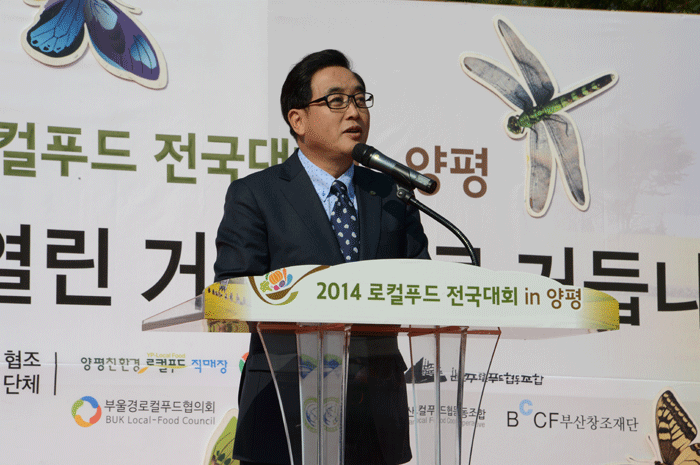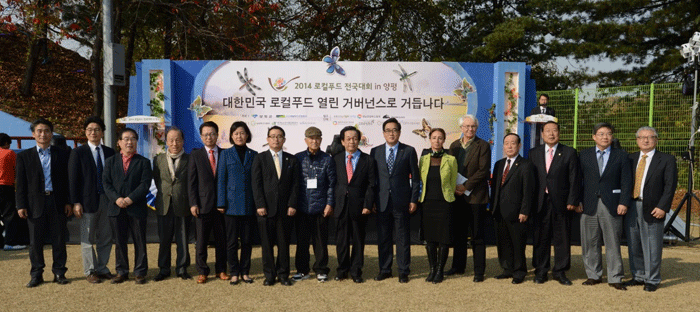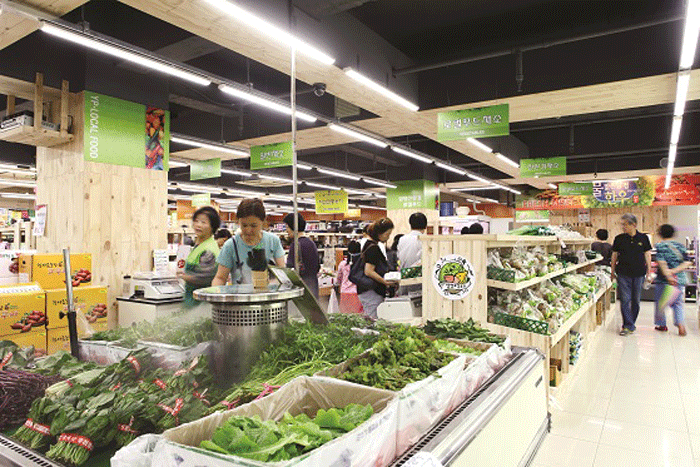Local food direct sales stores opened
Yangpyeong County, surrounded by several mountains and rivers, has been leading the development of eco-friendly agriculture. Indeed, the county has faithfully pursued an environmental agriculture policy for 18 years since it was adopted in 1997 when the financial crisis hit the country. In the 2000s, the agricultural policy has evolved into the sustainable and eco-friendly agriculture that pursues environmental conservation and agricultural safety.

Yangpyeong is actively engaged in the local food campaign right now. It can be summarized as “local production, local consumption.” Eco-friendly products that are produced by local farmers are consumed within the county as much as possible so that the transportation of local food can be shortened. For this reason, local food is fresher and tastes better than food that has been transported from far away. Local food is also safer as local farmers tend to be less aggressive with using pesticides and fertilizers.

Yangpyeong is the first Korean county to be designated as the special zone for environmentally friendly agriculture. Taking advantage of its knowledge and experience of environmental agriculture, the county hosted the “2014 Local Food National Championship in Yangpyeong” at its Kobaco training institute on Nov. 7-8, 2014. The event was jointly hosted by Local Food Korea, supported by the Ministry of Agriculture, Food & Rural Affairs.
Taking part in the event whose main theme was “Korea shall be reborn with open local food governance” were a number of civilians and government officials who work to promote the local food movement in Korea and consumers who eat local food. Participants agreed that “our dining tables and the rural community are in crisis.” Food producers and consumers, in this regard, need to explore ways to overcome the problem.

Of note, a declaration, “The era of eco-friendly local food has dawned in Yangpyeong,” was adopted at the contest’s opening ceremony. Reading the declaration, Yangpyeong Mayor Kim Sun-kyo pledged to work for creation of “new food culture that farmers and consumers and urban and rural areas can share.” He stressed that Yangpyeong will follow through on the local food initiative.
Local Food Direct Sales Stores
Farmers in Yangpyeong County set up an eco-friendly local food union in January 2014. A local food direct sales store was reopened in Yangpyeong-eup in November after being refurbished with a view to supplying pollution free food to consumers. The county opened a direct sales store in Seocho-dong, southern Seoul, in August to sell fresher local products to consumers at low prices. Beyond its role of store, the Seocho outlet is serving as a valuable space where urbanities and farmers communicate.

Local food direct sales stores are also promoted by the central government as part of the effort to improve the distribution structure of agricultural products. They also contribute to stabilizing prices and enhancing farmhouse income.
The number of consumers who were registered with Yangpyeong’s local food direct sales stores exceeded 5,000 in late 2014. By 2017, the county seeks to raise the number to 30,000. There are plans to open new direct sales stores in county areas which attract a significant number of visitors.

Yangpyeong operates a “local food consumer tour program” which enables consumers to access rural households and get on-hand experiences on farming practices. Consumers can witness the production and cultivation process of agricultural products, which will lead them to eat more environment-friendly local food.
In addition, there are 23 on-hands experience farm villages in Yangpyeong which host a variety of festivals throughout the year. these festive events attract more than 2 million tourists a year.

